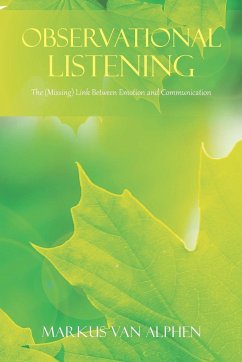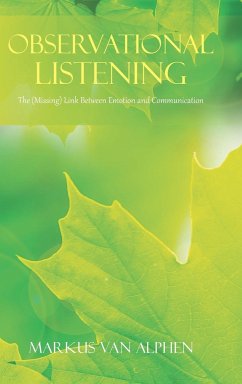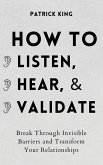Conversational skills. People already talk with one another, don't they? It should be redundant to write a book about conversational skills-or so you would think. Yet there are differences between people: one seems to get a little more done than the next. Often this boils down to subtle differences in the way they communicate. Ordinarily, people tend to ask questions with a certain goal or purpose in mind. They then listen to the answer as if the answer is based on the question as they meant it to be. Yet the other is answering based on what he understood the question to mean. Observational listening trains the listener to let go of his own goals and interpretations and concentrate on the reactions evoked. In other words, the listener tries to find out what the question meant to the other. In this way, he "gets it" and is able to bring depth into the conversation in a natural way without resorting to tricks. This book also goes further than your everyday conversation: it is directed at conversational skills in psychosocial settings. The philosophy behind the book is simple yet profound: if you realise that communication is an emotion as well as the expression of emotion, the way to becoming an excellent communicator is to understand emotion and how it translates into behaviour. This is what makes this book unique: it provides the missing link between emotion and communication.
Hinweis: Dieser Artikel kann nur an eine deutsche Lieferadresse ausgeliefert werden.
Hinweis: Dieser Artikel kann nur an eine deutsche Lieferadresse ausgeliefert werden.









